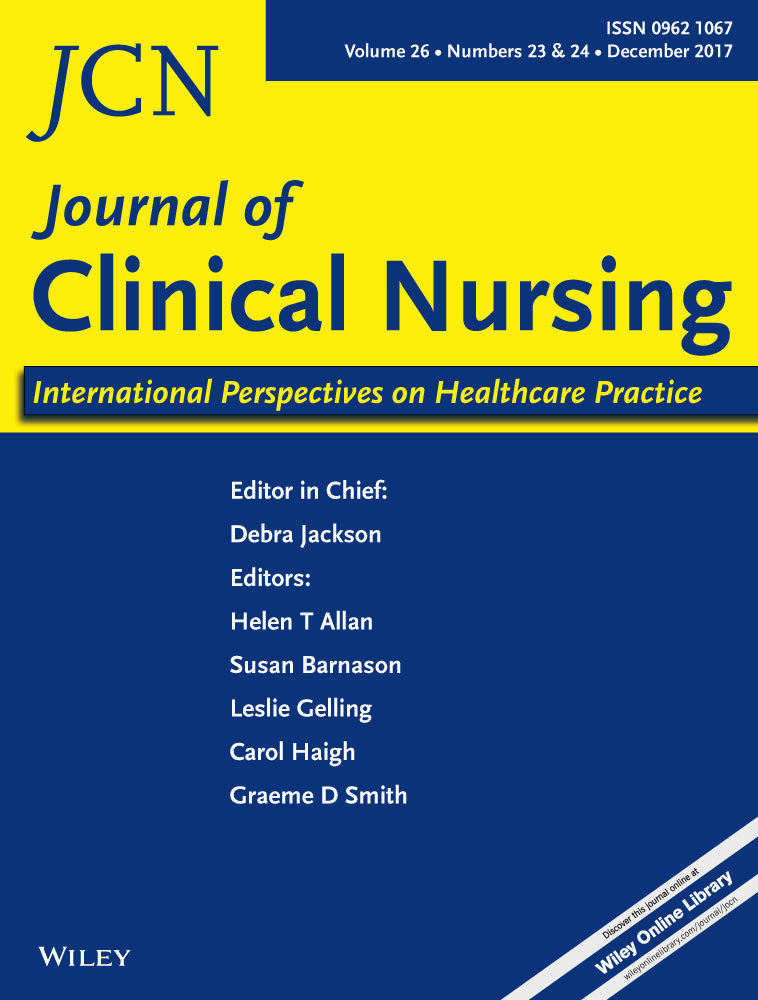Counselling parents on young children's healthy diet: A modified scoping review
Abstract
Aims and objectives
To map and describe key information in existing research about counselling of parents of children aged 0–2 years on the child's healthy diet in preventive healthcare settings, particularly in public health nursing.
Background
Many parents are likely to be concerned with their infant's food-related happiness “here and now,” disregarding the child's long-term health and development related to feeding practices. Hence, a focus on counselling parents in considering young children's healthy diet is important.
Design
A modified scoping review with an inductive qualitative content analysis of selected empirical studies.
Methods
Systematic searches in EMBASE (1996–2015 Week 46), Ovid Nursing Database (1946–2015 November Week 1), Ovid MEDLINE and Ovid OLDMEDLINE (2000—18 November 2015) and CINAHL (2000—22 December 2015), using search terms based on aims.
Results
Eight included studies, with participants per sample ranging from 19–>500. Research designs were focus group discussions and/or interview study (n = 2), cluster-randomised trials (n = 2), randomised controlled trials (n = 2), a follow-up interview study (n = 1) to a previous randomised controlled trial and a cross-sectional electronic questionnaire study (n = 1). The studies included a total sample of 2,025 participants, 42 of them in interview studies. Findings indicate parents' perceptions of inconsistency, misconceptions and uncertainty related to the recommendations on child feeding from the authorities. Thus, adapted advice could impact healthier child diet. Maternal knowledge on child feeding and reduced use of food as a reward are mediators for improved diet quality in children.
Conclusions
Counselling on young children's healthy diet should be anticipatory, consistent and adapted to the family.
Relevance to clinical practice
Due to inconsistent recommendations and omitted focus on anticipatory counselling on child feeding, parents might perceive pressure and uncertainty related to the child's diet.




